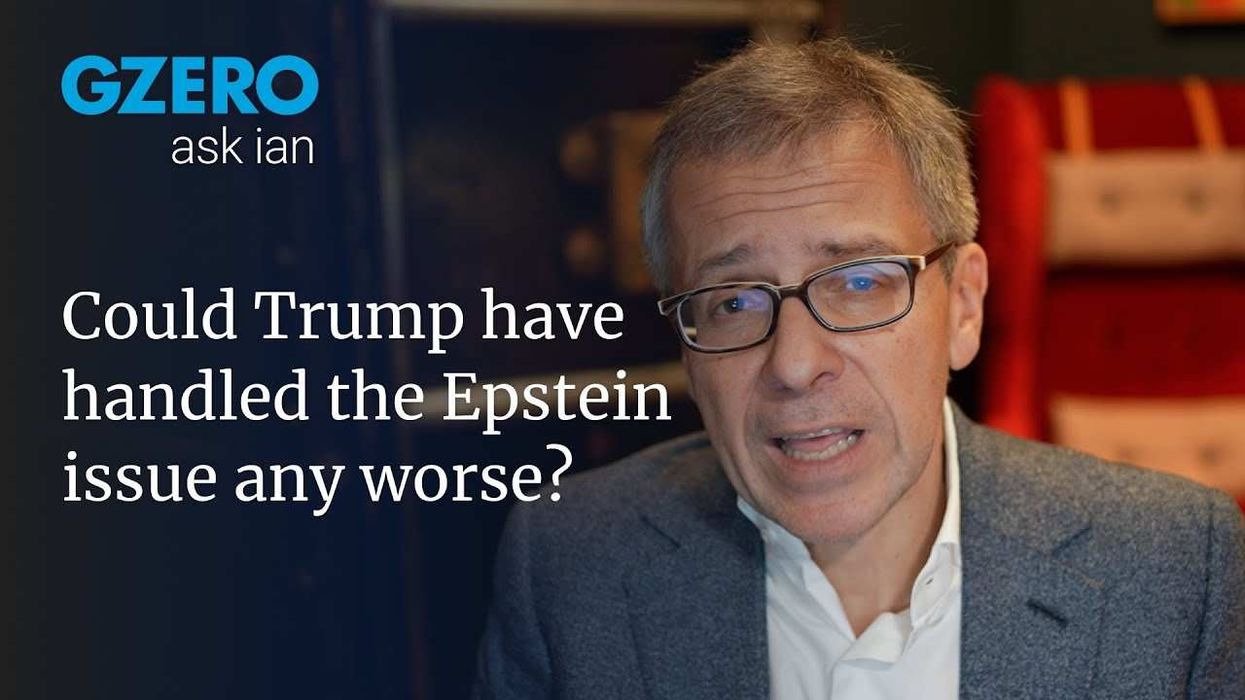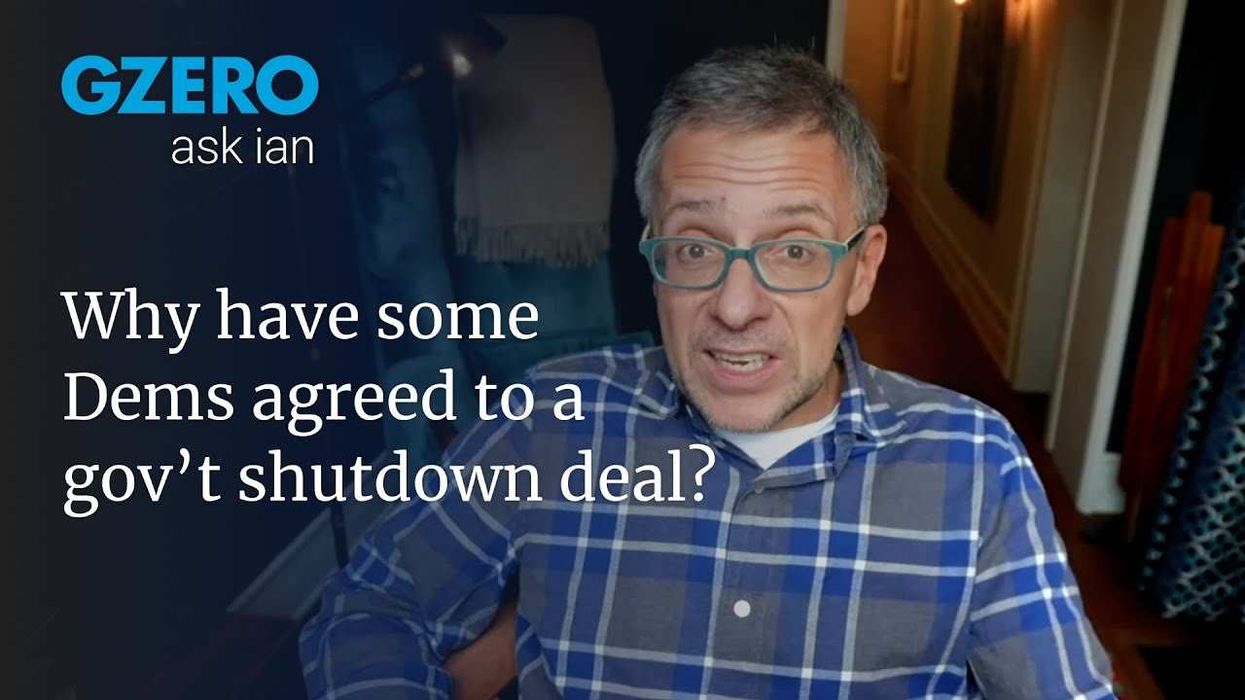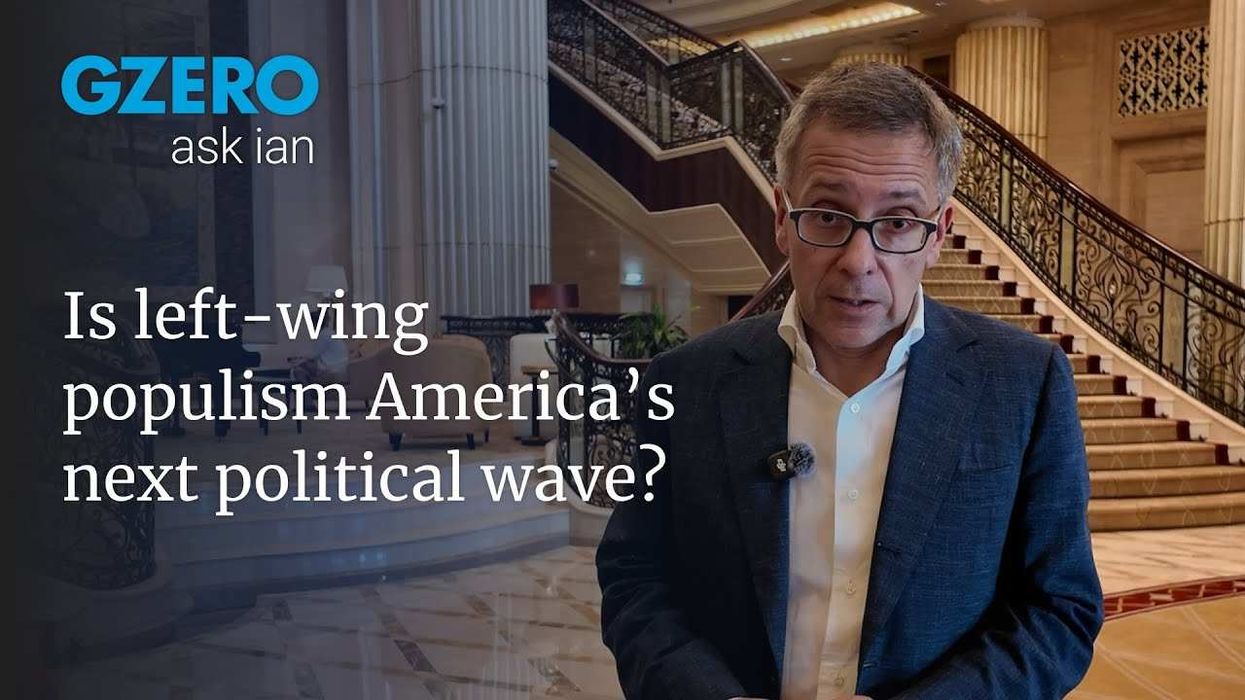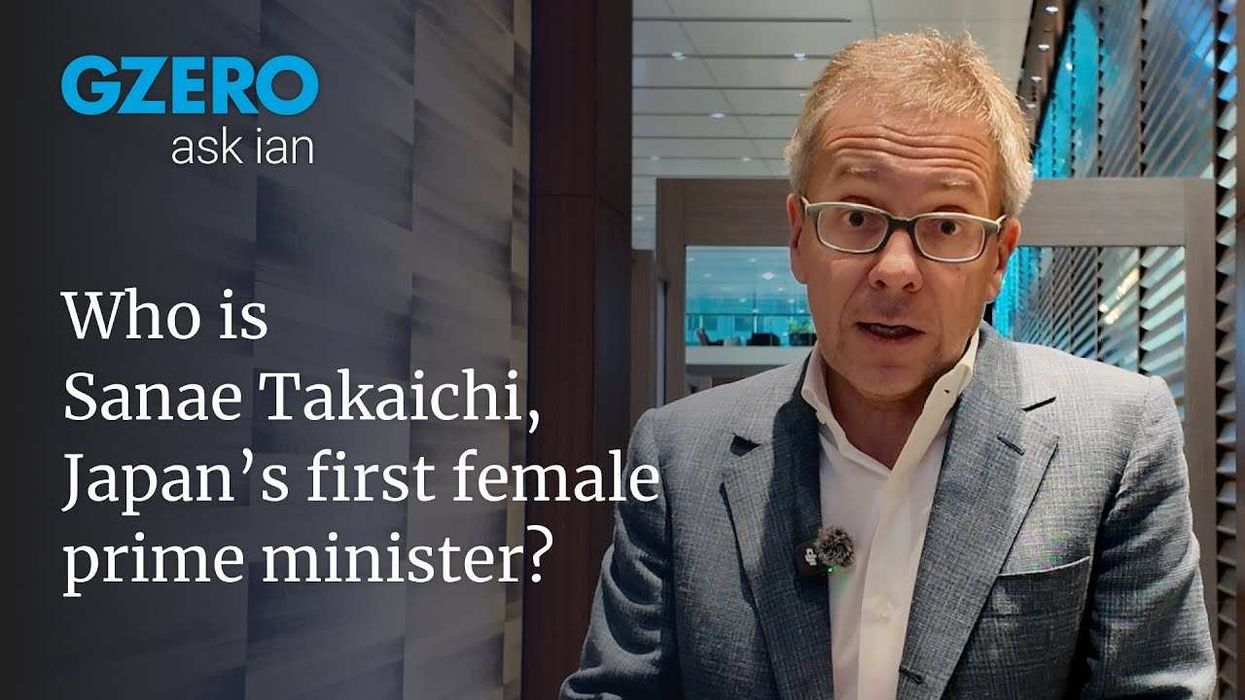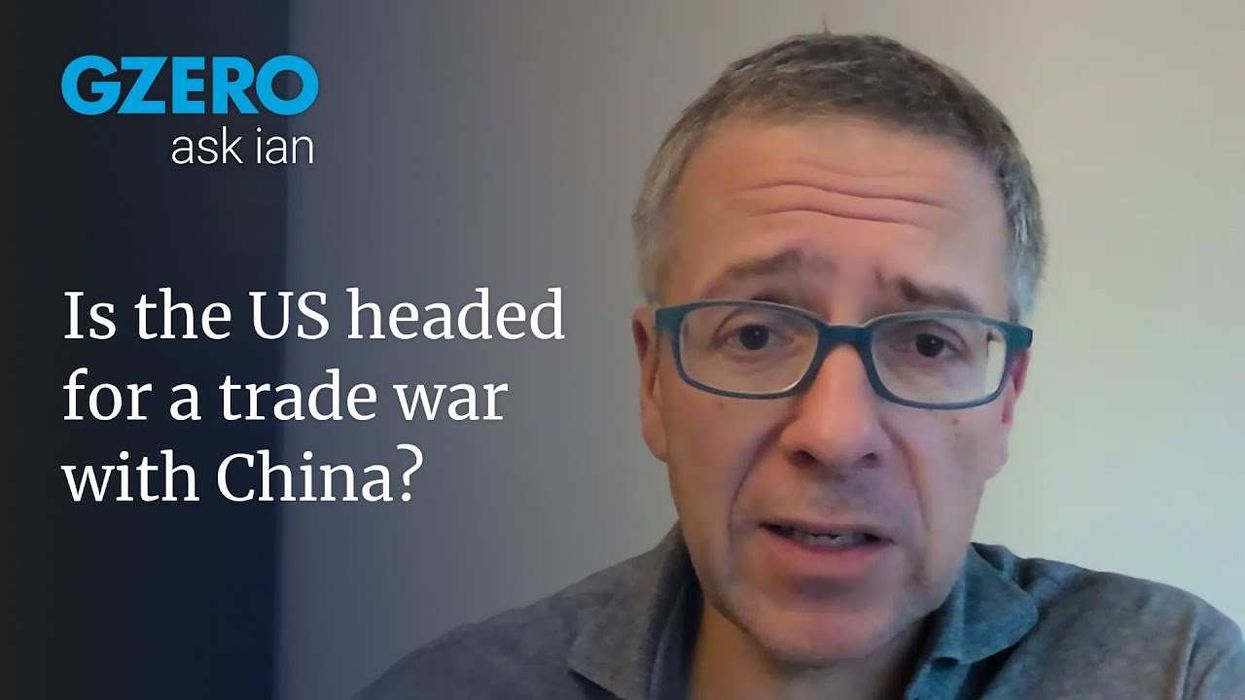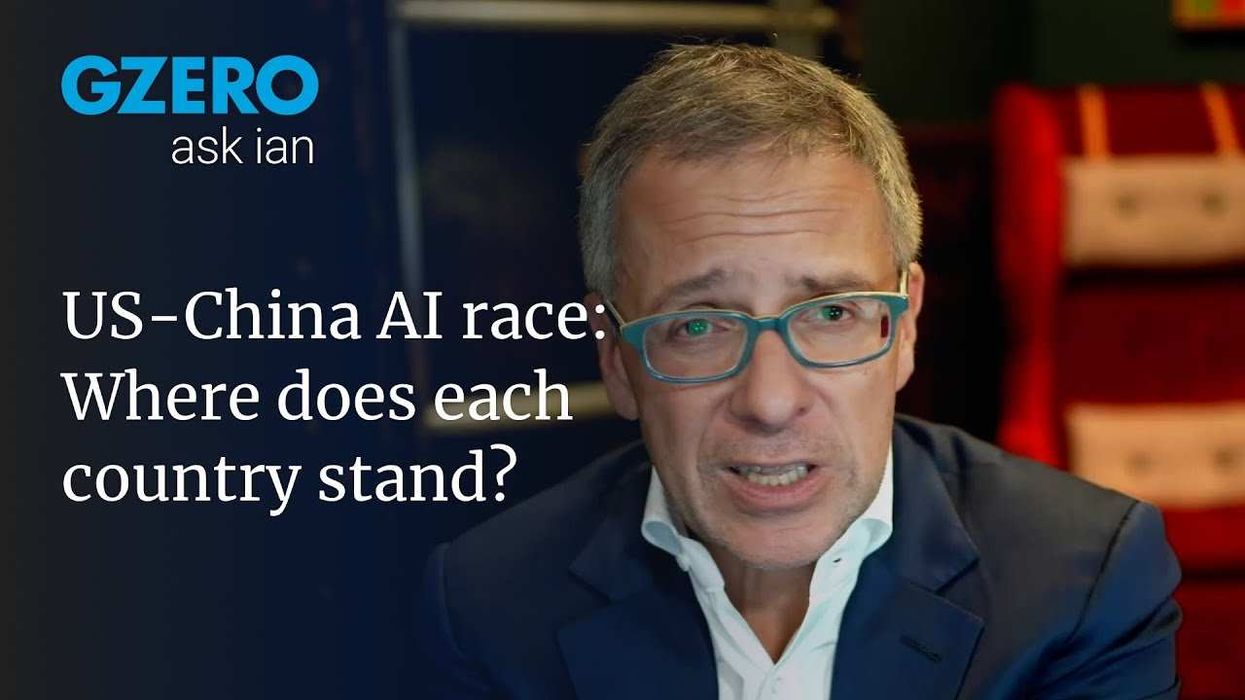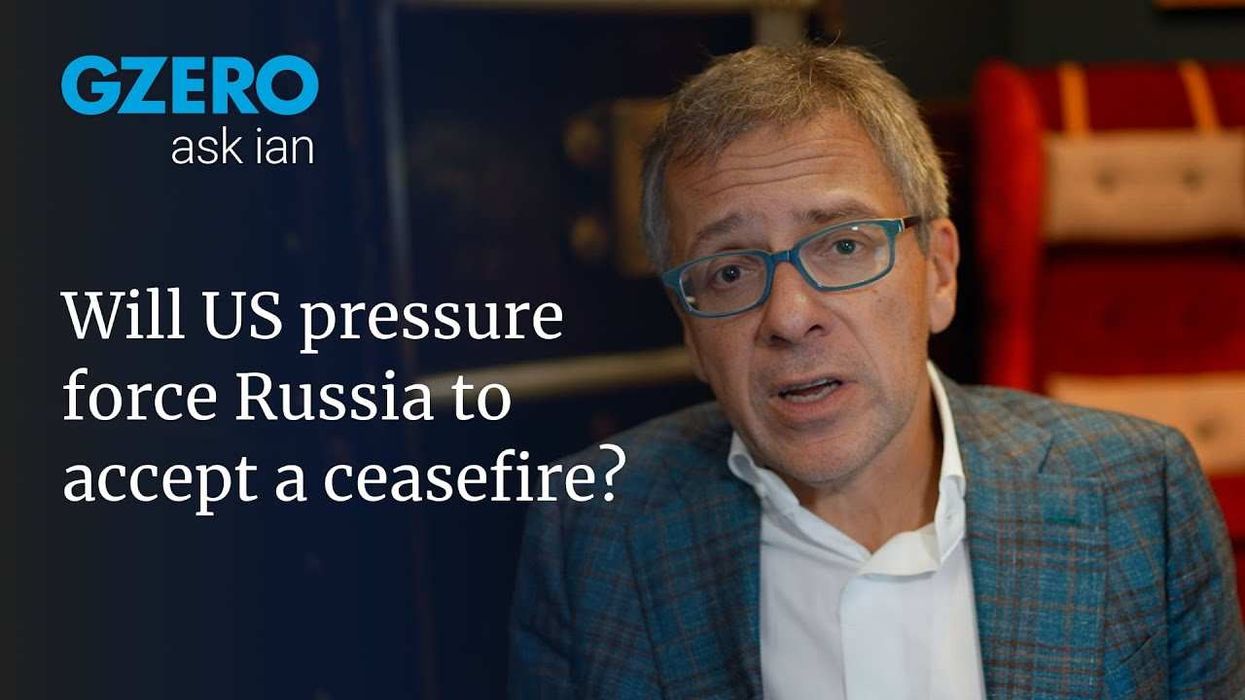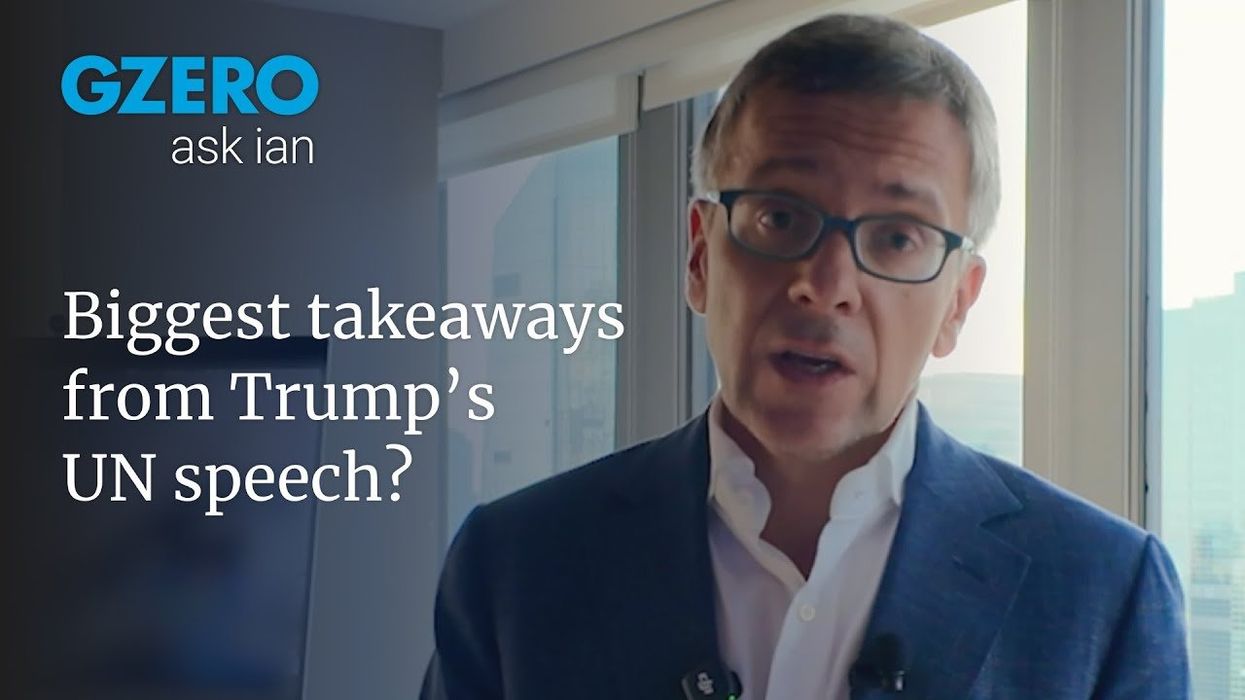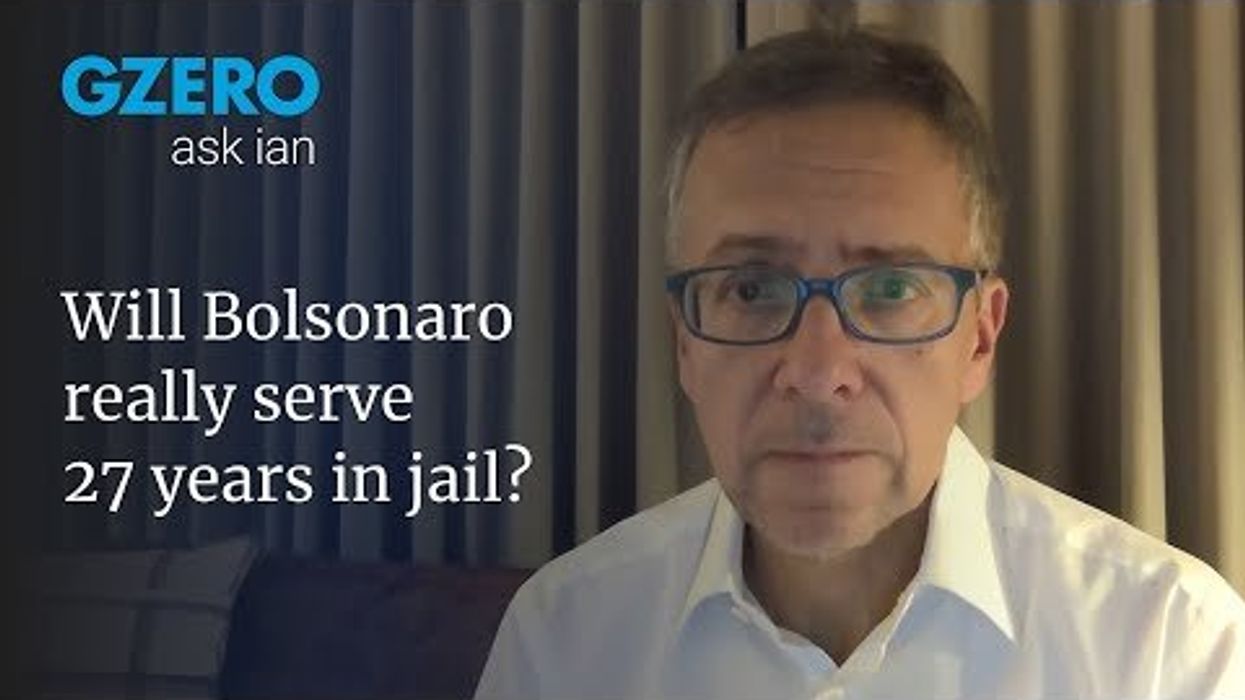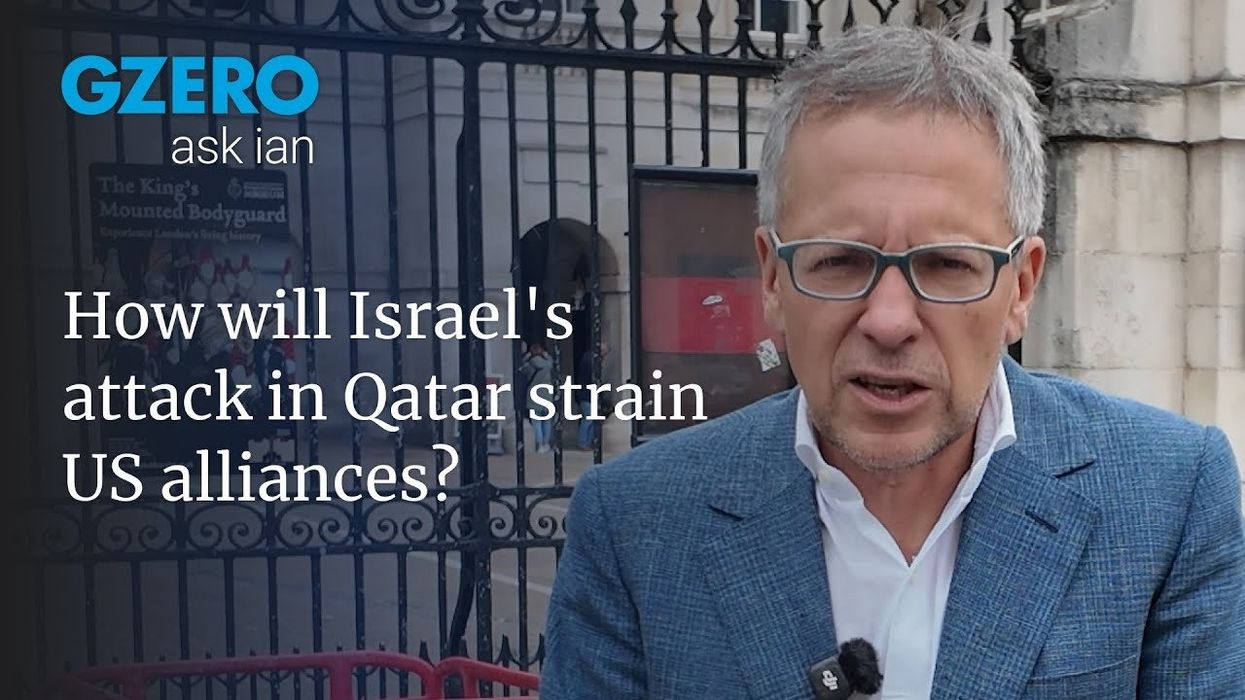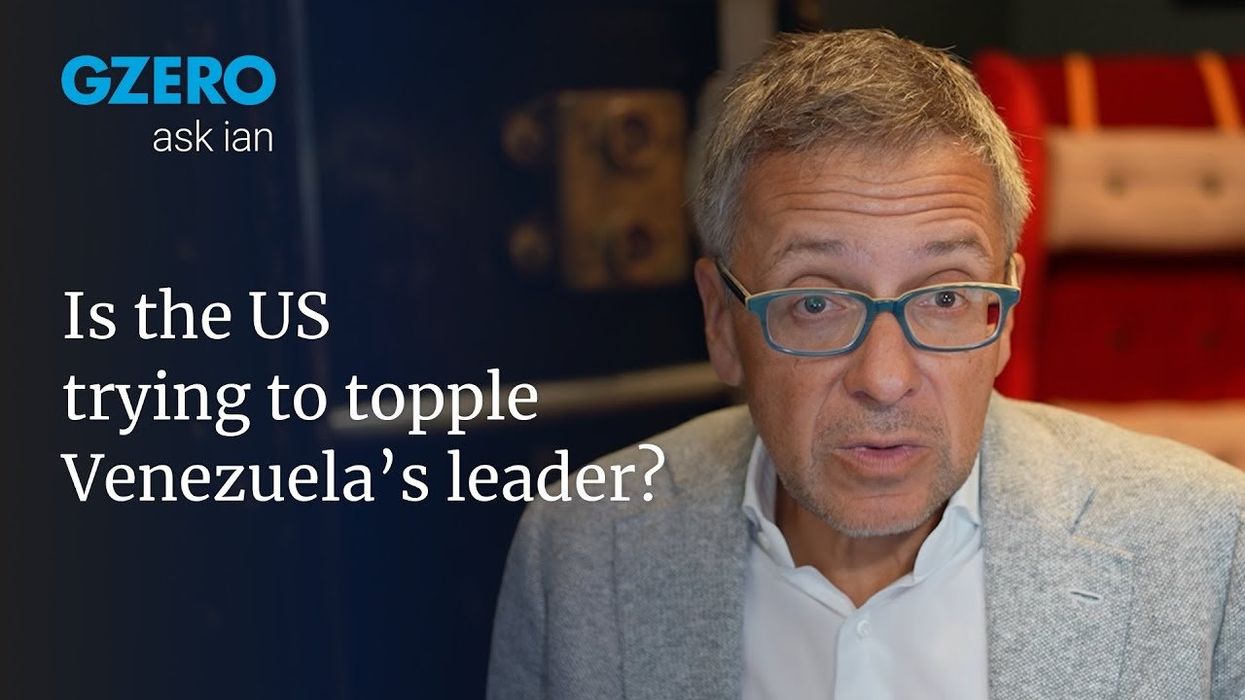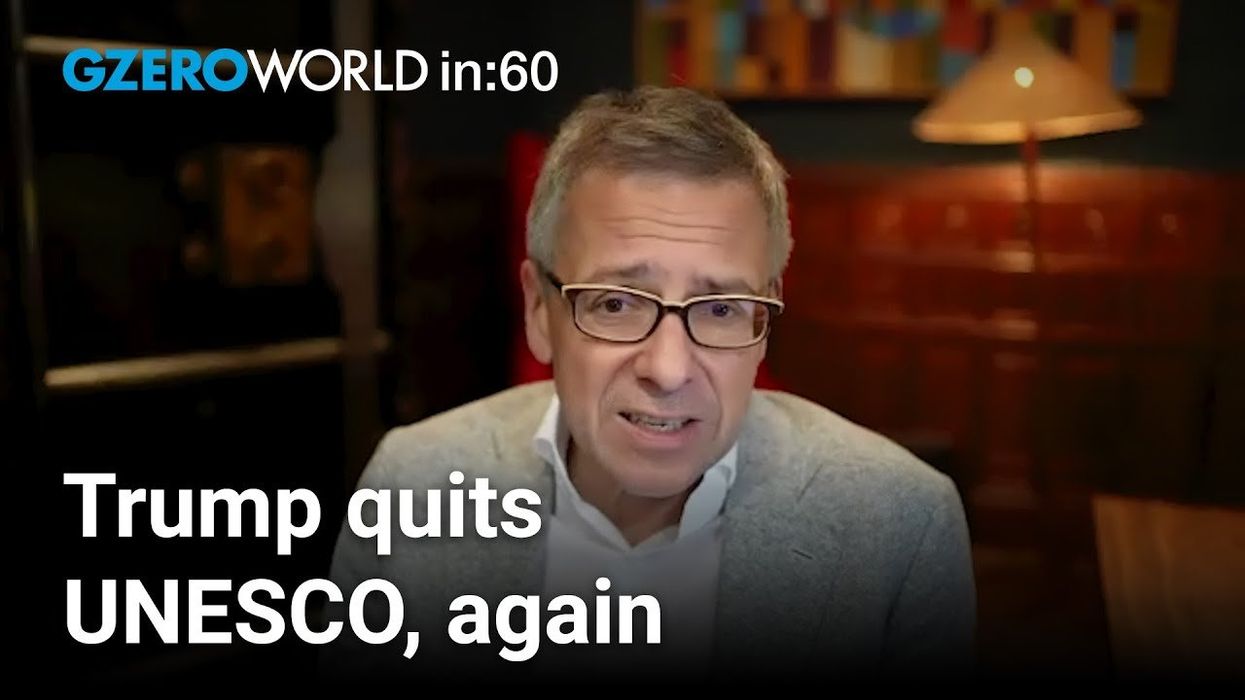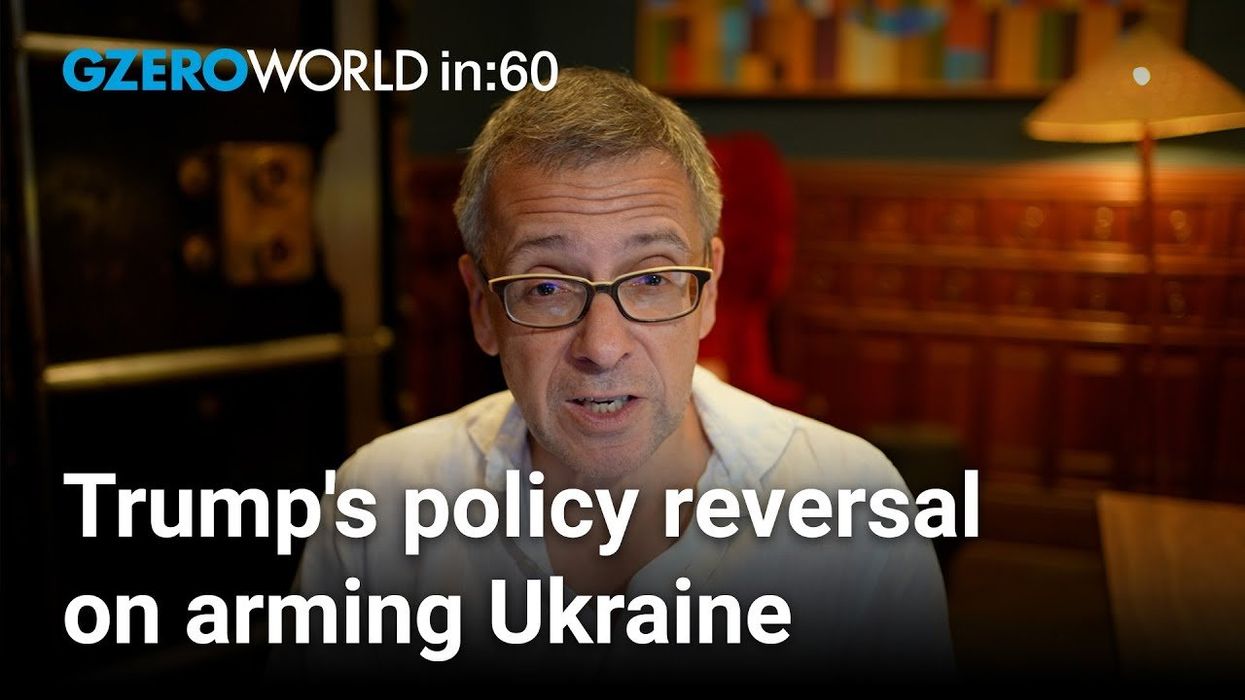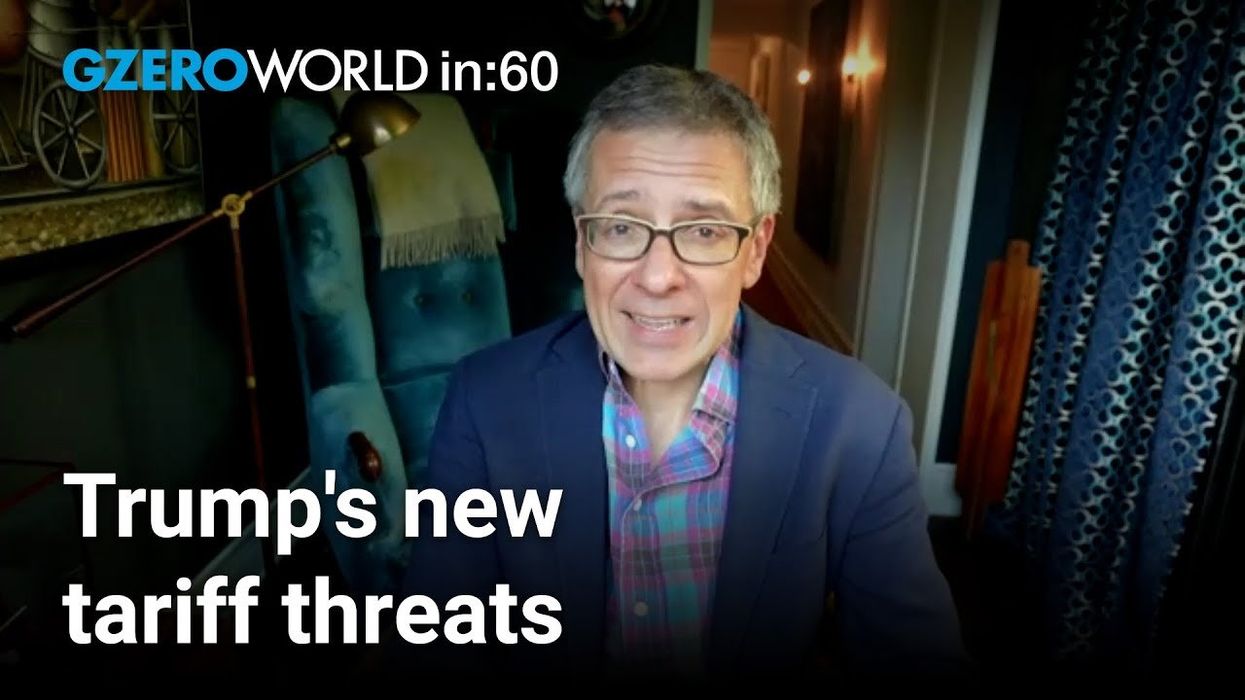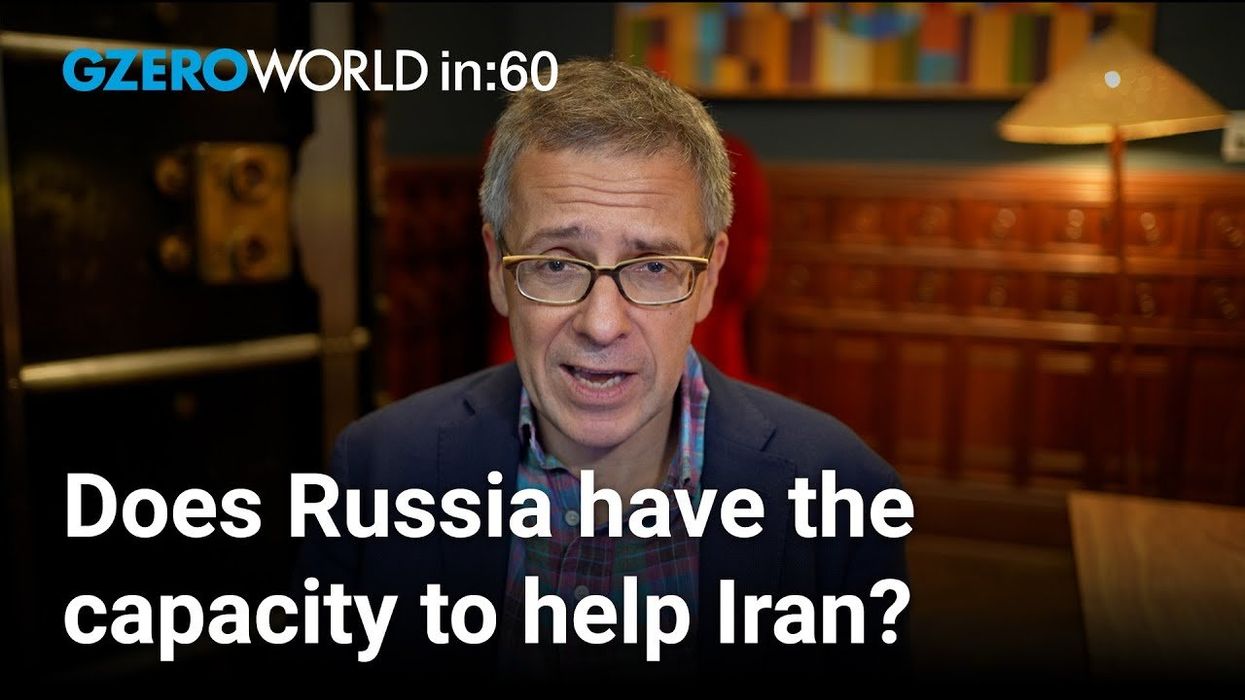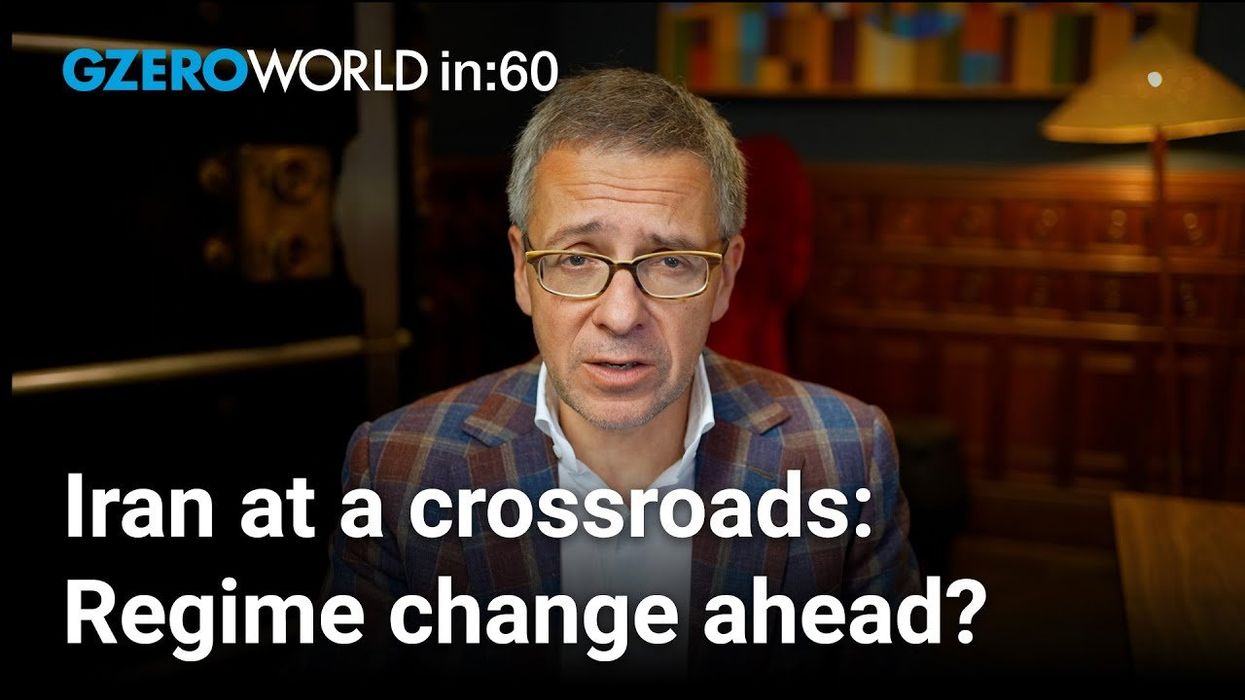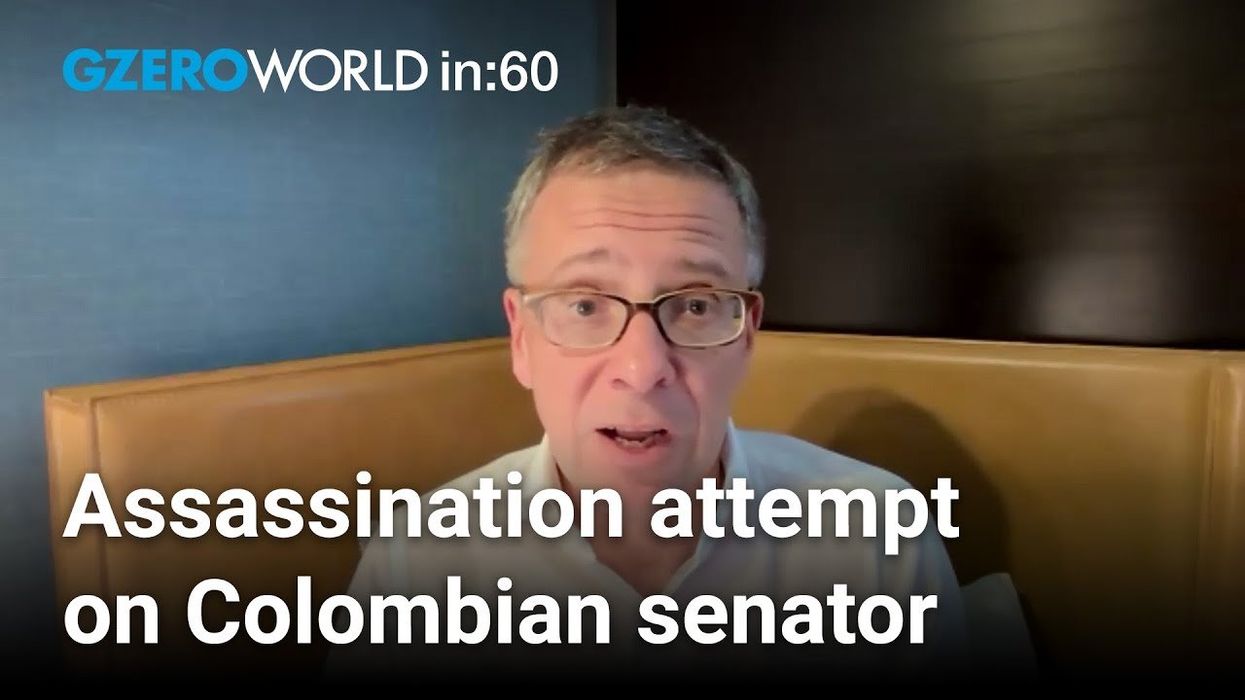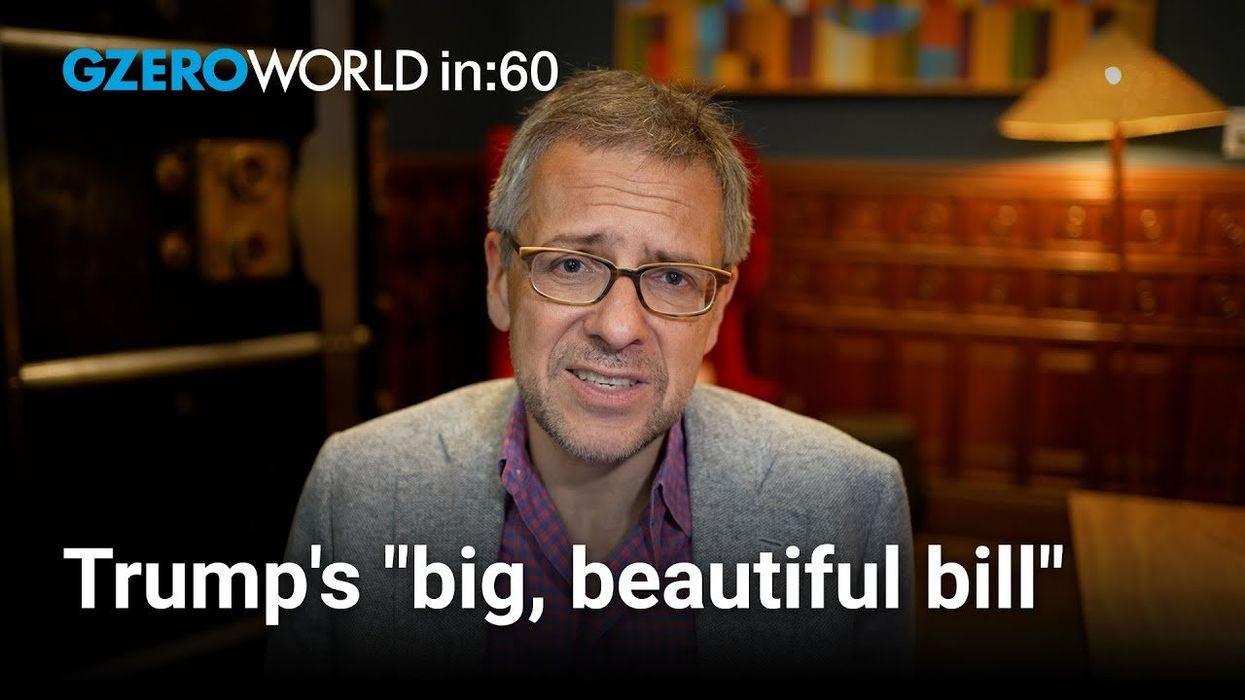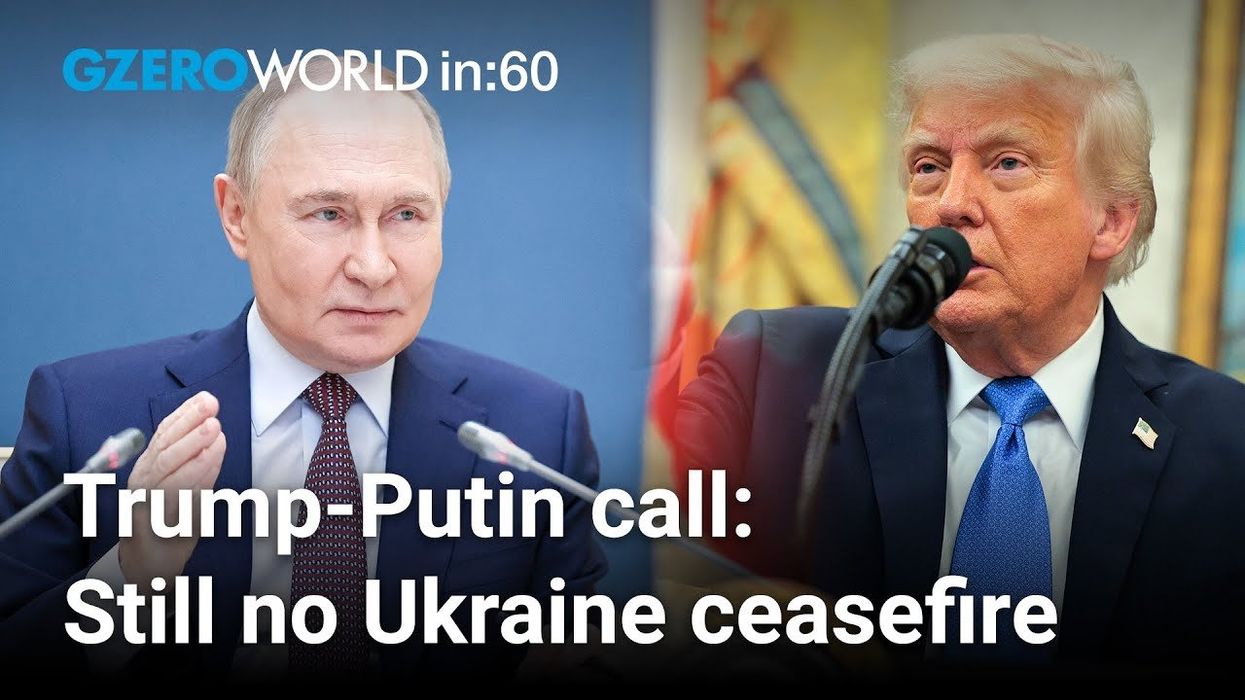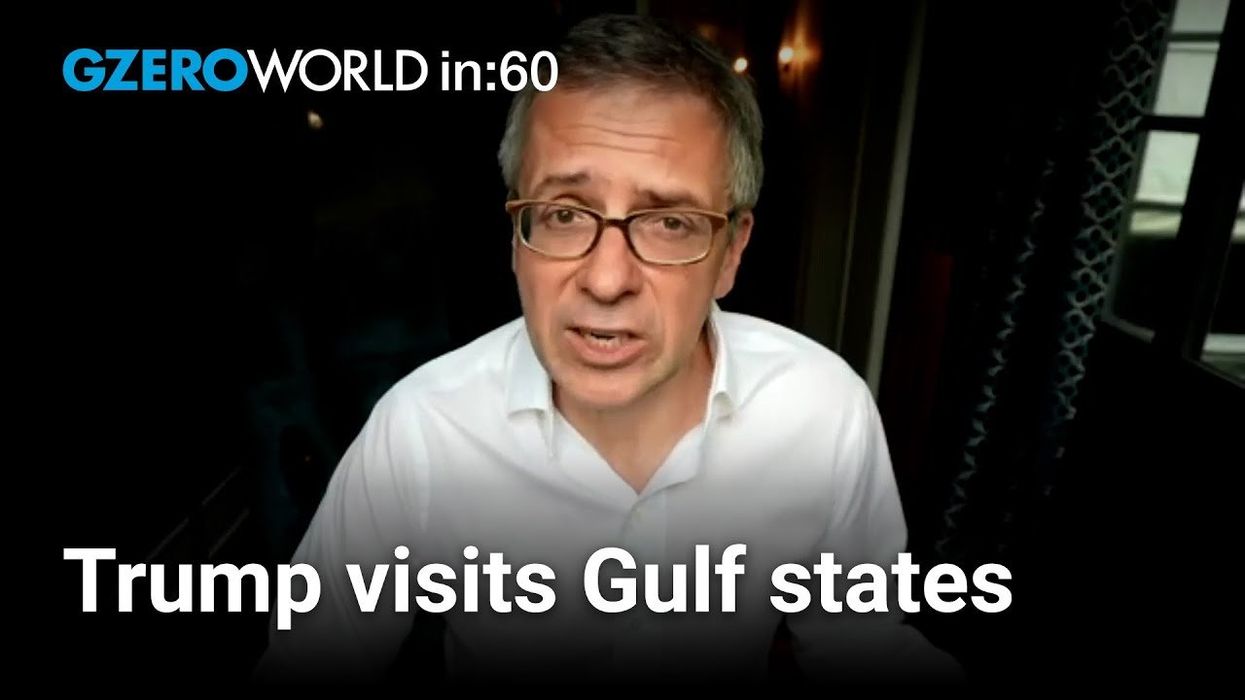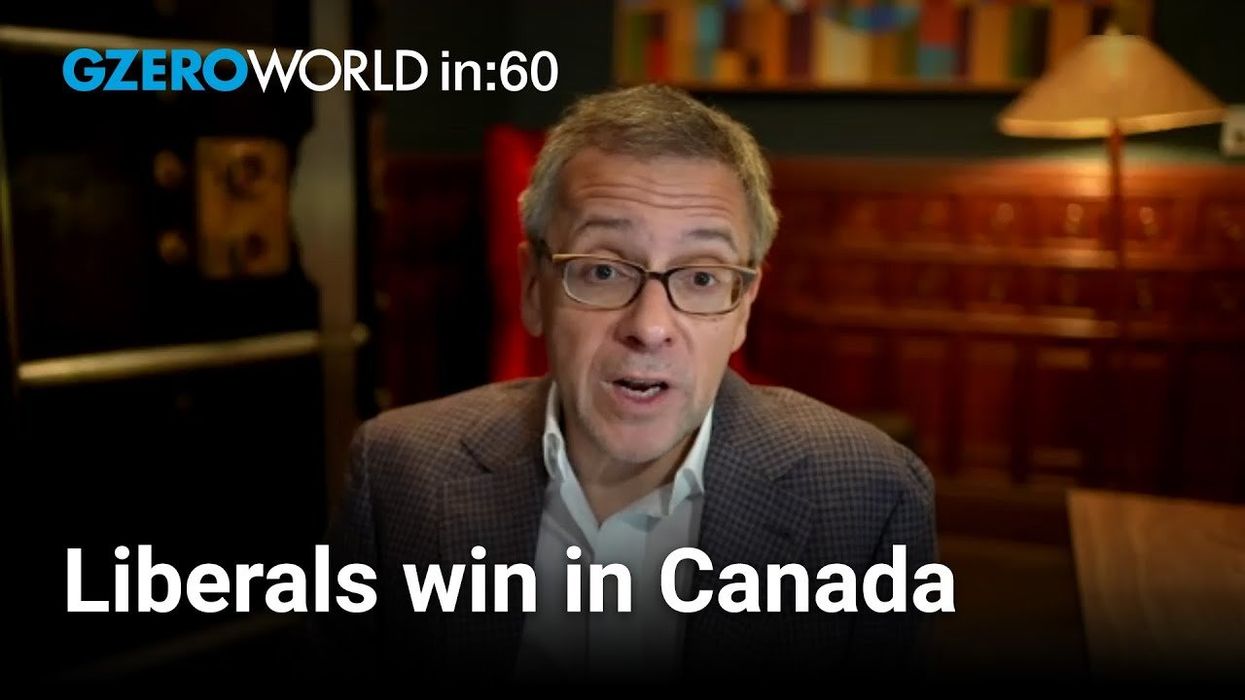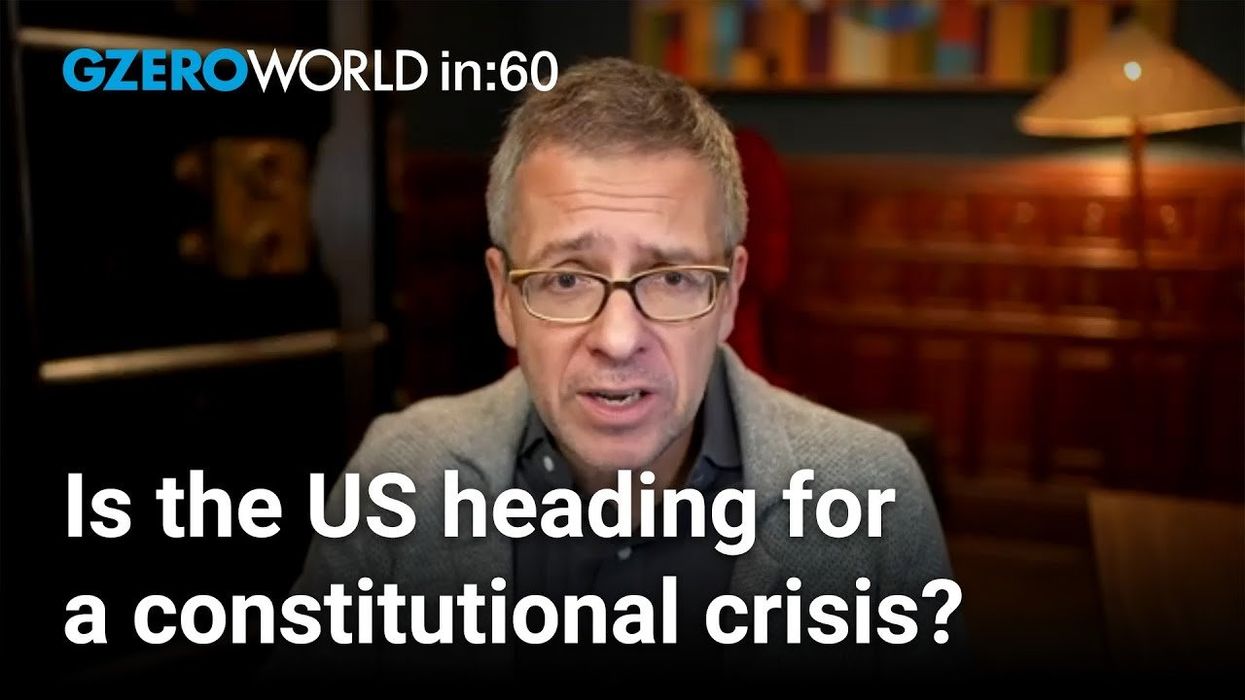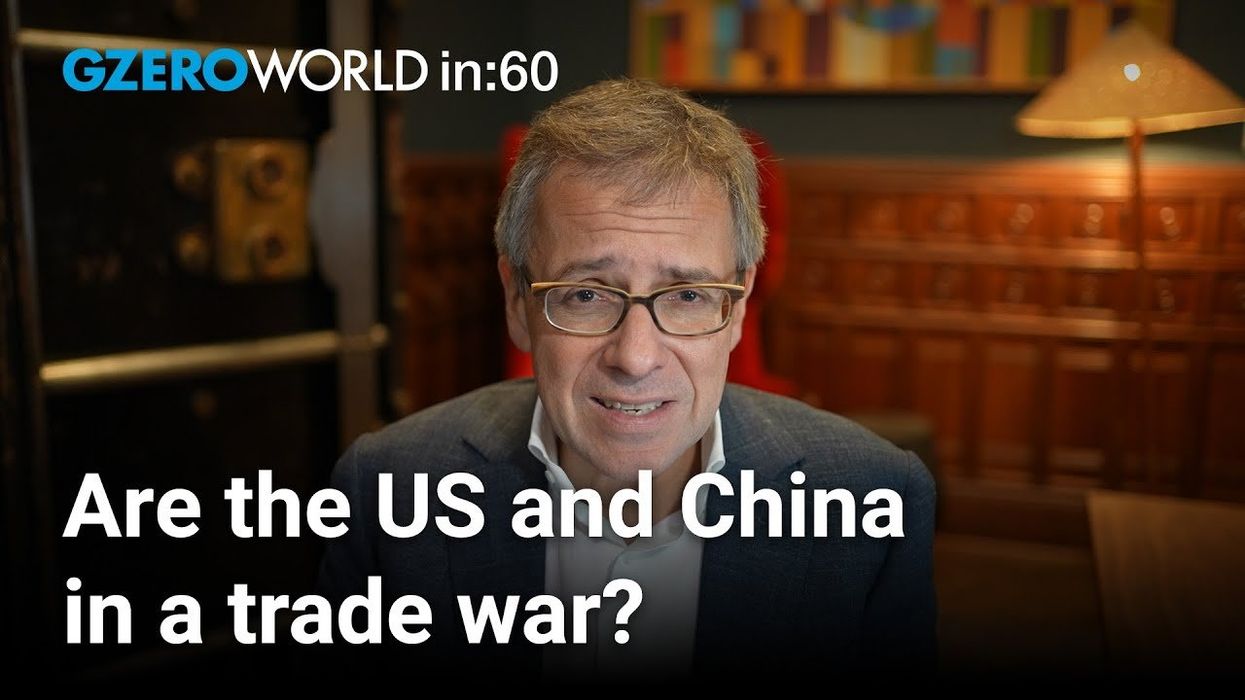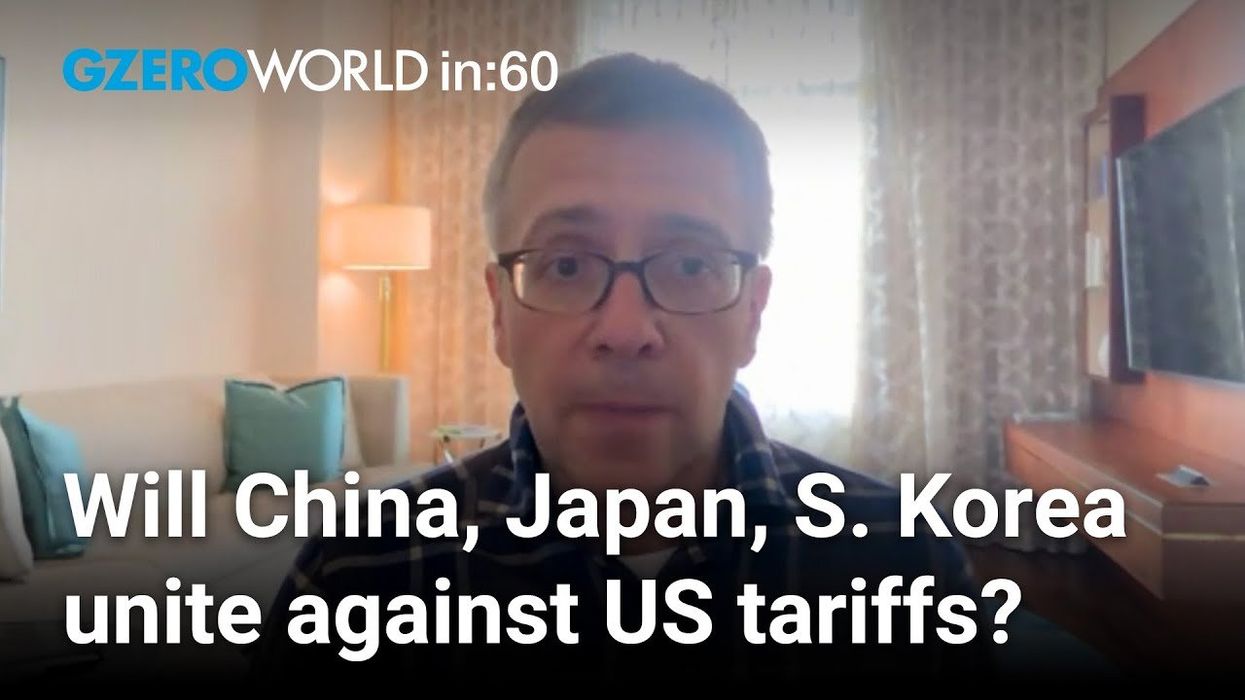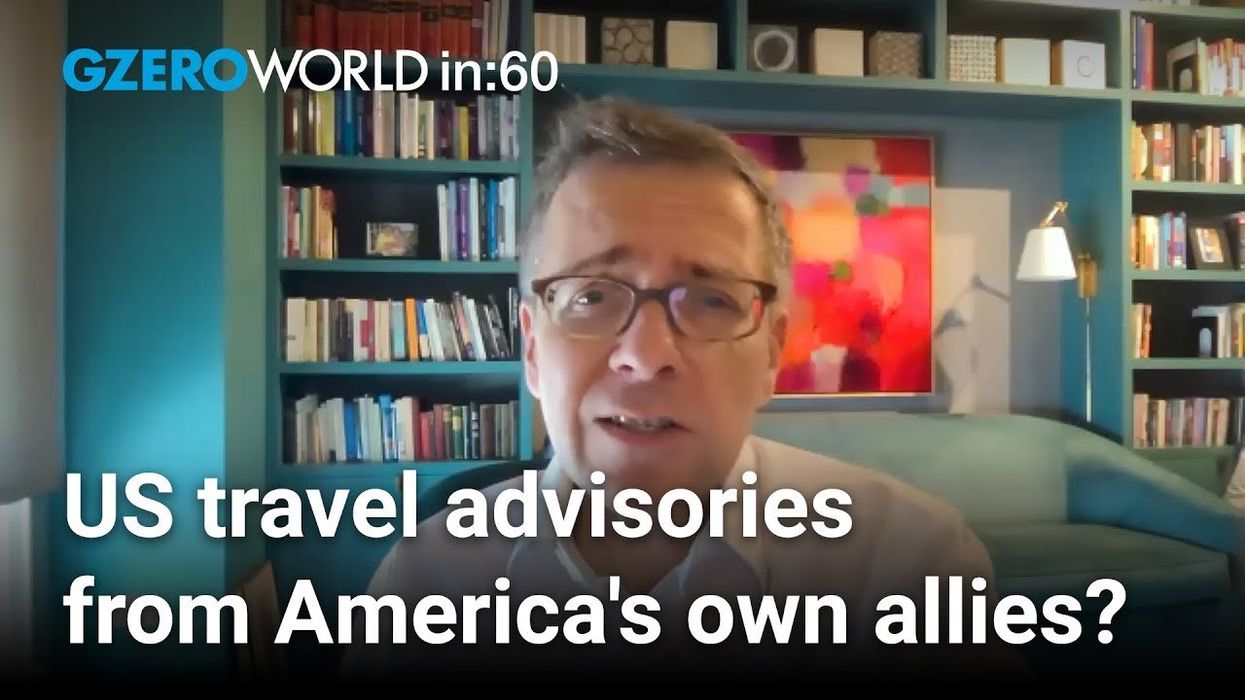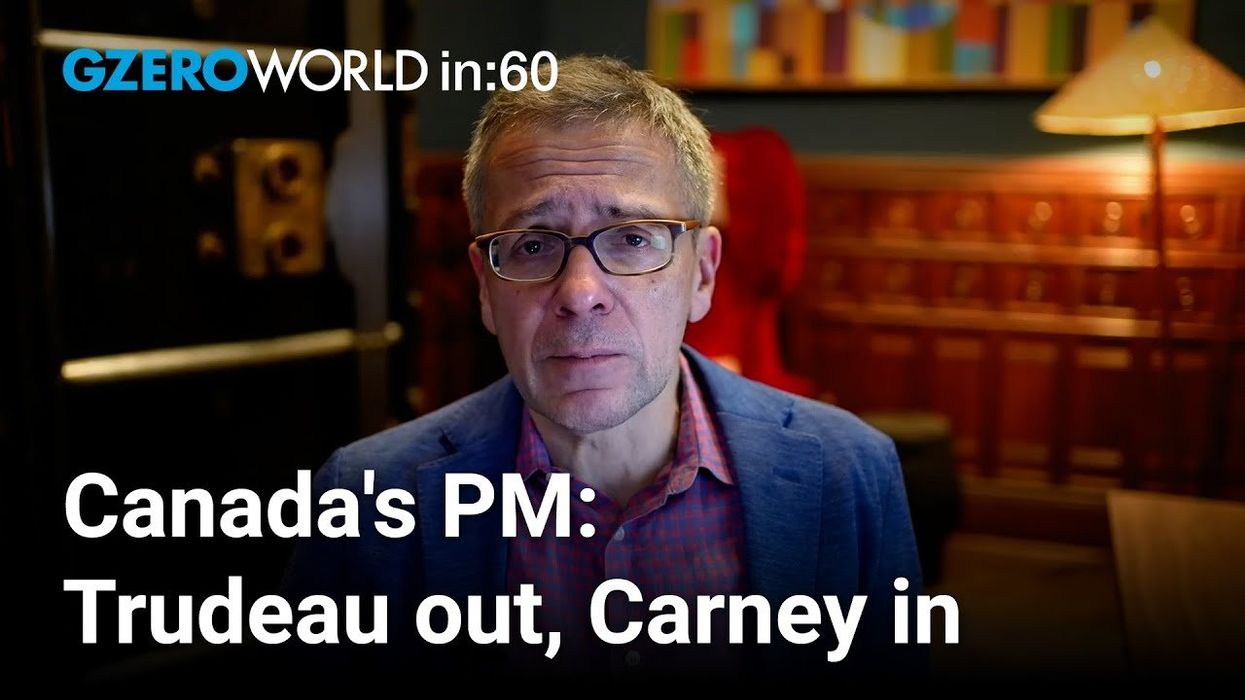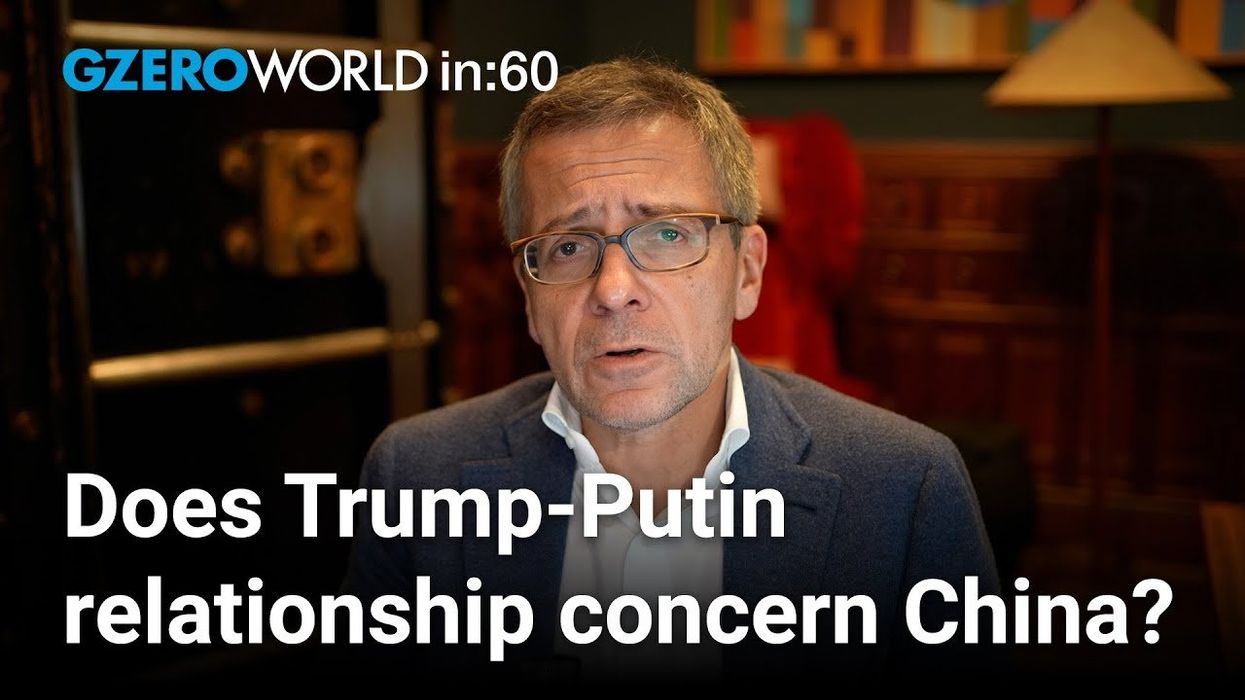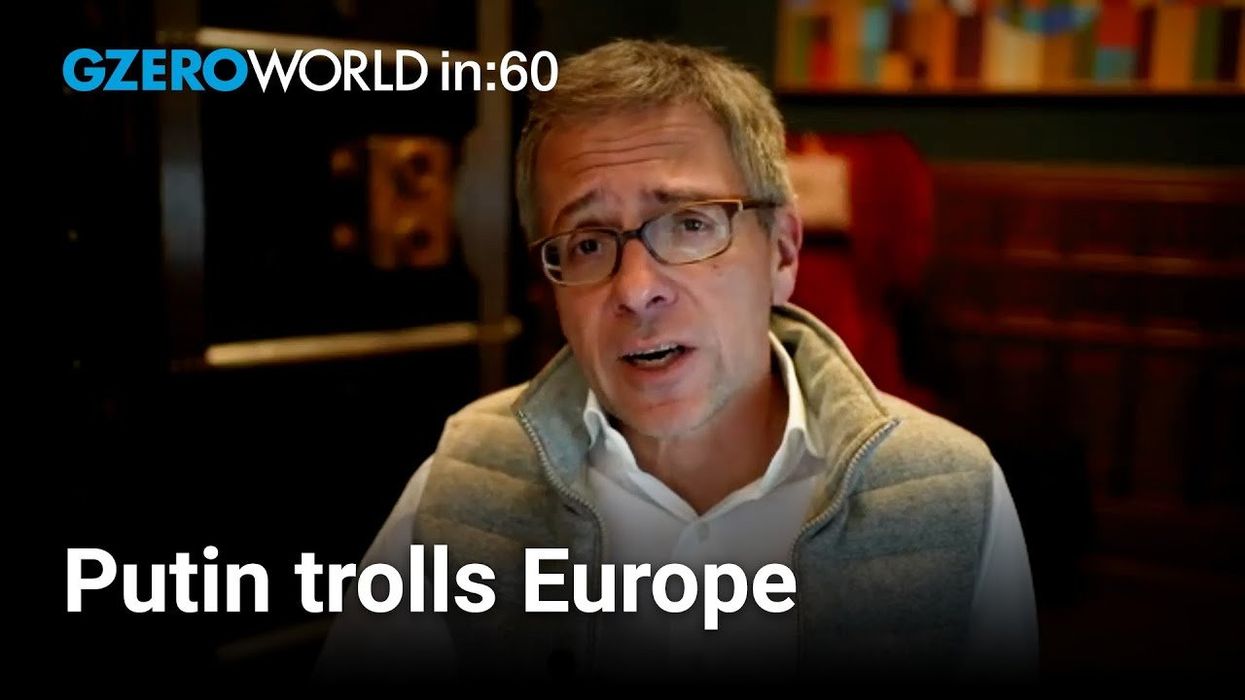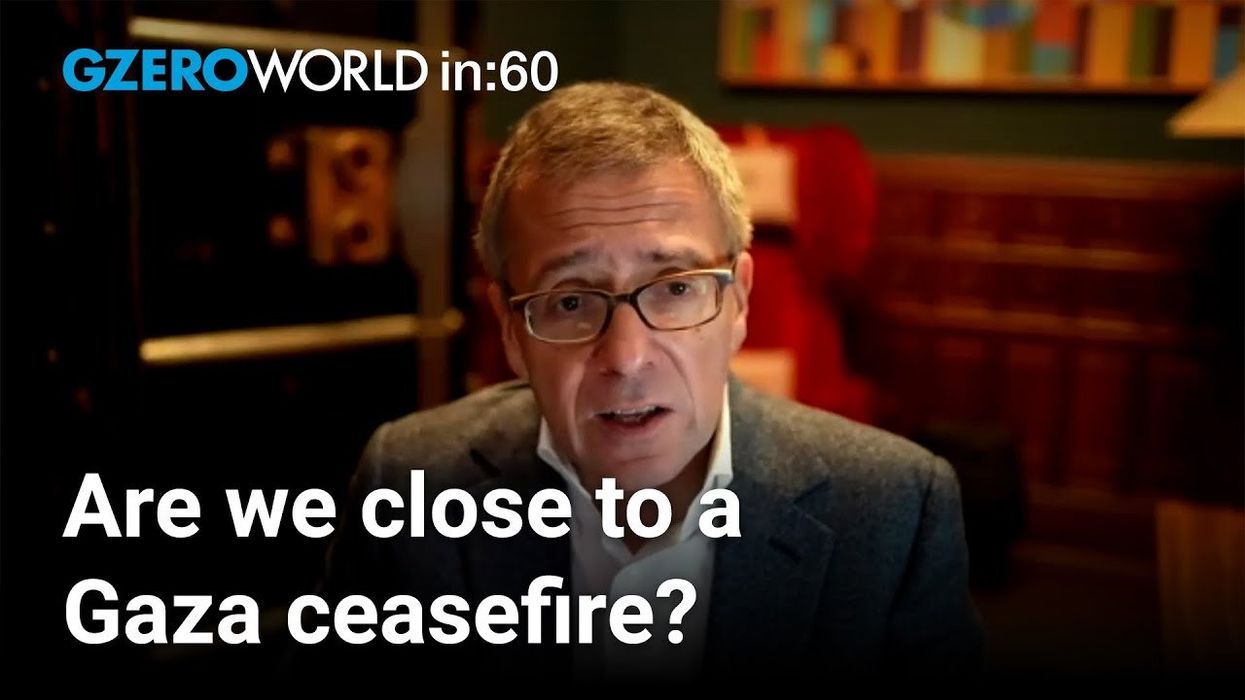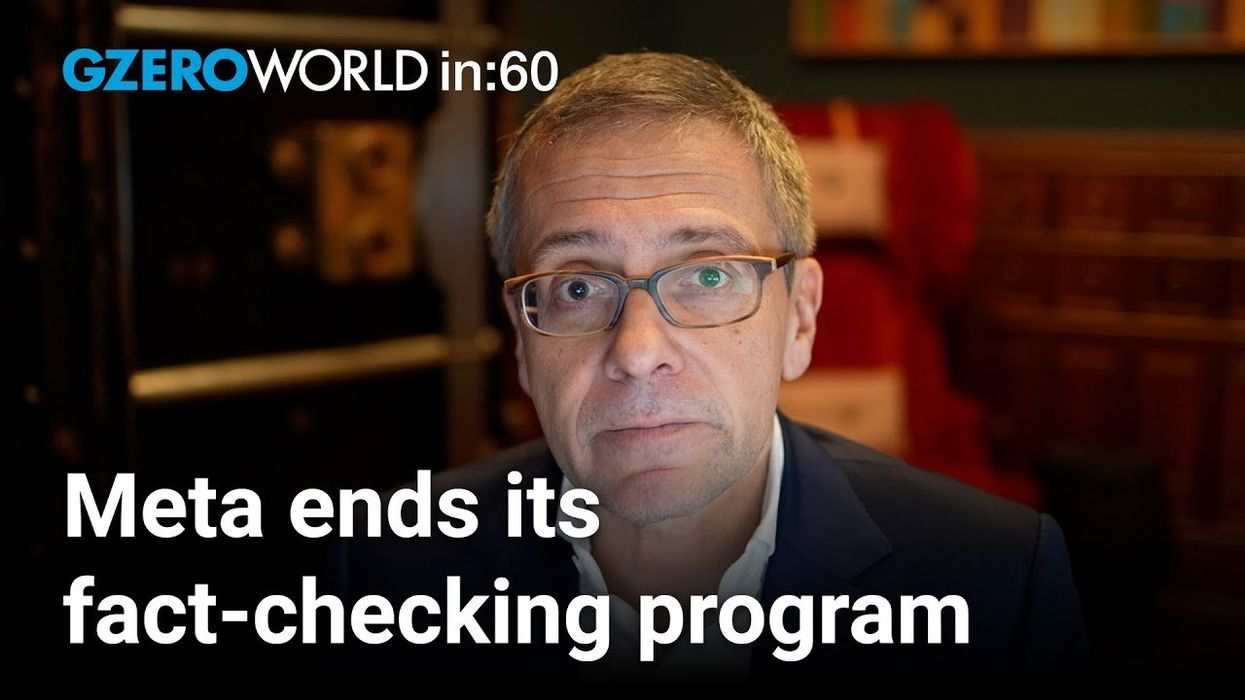VIDEOSGZERO World with Ian BremmerQuick TakePUPPET REGIMEIan ExplainsGZERO ReportsAsk IanGlobal Stage
Site Navigation
Search
Human content,
AI powered search.
Latest Stories
Start your day right!
Get latest updates and insights delivered to your inbox.
Ian Bremmer shares his insights on this week's World In (More Than) 60 Seconds:
Let's go. Number one. What are the chances the Armenia-Azerbaijan ceasefire holds?
Well, I mean, in this environment, a hold is virtually zero. There's very little restraint on the ground. Local, military leaders, especially in the autonomous region of Karabakh, aren't necessarily listening to everything that the Armenian government has to say. One shot, one drone leads to more. And, there is no process by which the Armenians and the Azeri leadership can say that, "They're winning, yet." And so, that makes it hard. But the fact that the Russians are engaging, we had trilateral talks with the Armenians and the Azeris, the Russians matter the most here. They're the ones that have ensured, some level of frozen instability between the two. There's been significant behind the scene's engagement in Moscow with diplomats, from both sides. And, I think the Russians have made very clear to the Turks at this point, that the Turks are not going to get a leadership seat in the Minsk group, broader negotiations. And, that the Russians would not tolerate a broader expansion of the war that threatened Armenian territorial integrity itself, as opposed to Nagorno-Karabakh. If they were to do that, the Russians would come in and defend Armenia. So, a lot of people are dying, certainly in the high hundreds, at this point. We've got nearly a hundred thousand additional people displaced. This is a horrible thing to see happen, but it's not the tipping point of war between Armenia and Azerbaijan.
I do think that there needs to be new reinvigorated negotiations. The fact is, that the Armenians presently hold, not just Karabakh, which is the territory that had been given to Azerbaijan by Stalin but is mostly Armenian. And, that was taken by the Armenians after the Soviet Union collapsed, that's not going to change. That's kind of like the Crimea situation between Russia and Ukraine. But there's also been territories around Karabakh. There are Azeri territories that the Armenians have occupied as a buffer zone. And, there has to be an ability to get off of that, to negotiate a way from that. I also think that if there are more people killed on both sides, not only is it harder for both sides to climb down, but the potential for the Armenian say to formally recognize Nagorno-Karabakh as part of Armenian territory, which makes the Azeris harder to climb down their own leadership, and weakens, presently if that's real. So, there is positioning, it's not just about the fact that this is still going to be a frozen conflict, and we know what the contours of the eventual solution will be. But, it's also that you have two leaders in place, that can't be seen as losing, these of these, the other on an issue that is incredibly important for them. I don't see an either one has provided significant diplomatic support, looks like some mercenaries, and some direct military support, but I can't see in any way, the Turkish military directly intervening on the Azeri side. So again, even though this is horribly damaging from humanitarian perspective, I would personally be really stunned to see this lead into Armenia, Azerbaijan direct war.
Okay. What's happening with Britain's new coronavirus lockdown measures?
Well, as you probably know, the United Kingdom has some of the highest levels of cases, per capita in the world, right now. This was a UK that originally was letting the virus rip through the country, and just going to protect the older people. That didn't work. They had to lock down. They then started opening up, and the cases have now gone up a lot. Boris Johnson has had to start locking down. Again, they didn't want to, they said, "They weren't going to." They now have this three-tier system between medium, high, and very high of alert systems. And, that's going across the country. But it's really hurting the poor North the most, that have the biggest transmission per capita, and are being locked down the hardest. Obviously, that's creating an enormous amount of agitation against Boris Johnson, both inside his own conservative party; and also providing more support for the labor party in the country. He doesn't have to run for elections anytime soon, but this is a real problem. If you are Boris Johnson and the UK right now, it's going to hurt their economy much worse, than pretty much any other economy in Europe, certainly more than the United States. Also, gives him more incentive, the silver lining, not to accept a no deal hard out. They're in World Trade Organization land, with Europeans at the end of this year. So, a little more likely they end up with a post-Brexit trade deal with the EU. Always got to be a silver lining.
Does the Taliban really support Donald Trump?
Well, I mean support. Do they like American leaders? No, of course they don't. They don't like the Americans. They would rather, the Americans leave. They like Trump more than Biden, because Trump's the guy that's been pushing to end the war, as far, as fast as possible, even against the interests of the military leaders, and advisors inside the Pentagon; as well as many American allies. Some have claimed that Trump is cutting and running, but of course this war has been going on for decades now. Most Americans really tired of it; the costs, the lack of success, the human costs. I mean, all of this is deeply problematic. And so, if you're the Taliban, and the United States has facilitated both direct talks, multilateral talks, a peace deal, but is also saying, "Irrespective of what happens, we're ending the war, we're pulling out." Well, if you're the Taliban, all you have to do is hunker down, pretend you're engaged in negotiations. And once the Americans are out, you can do what you want. So absolutely, the Taliban are happier with Trump, than they would be with Biden.
Now, there has been a big flap about whether or not the Taliban endorsed President Trump. I don't think the Taliban is really in the practice of formally endorsing leaders. But there was a CBS interview a few days ago, with the Taliban leadership and their spokesperson that said that, "Trump would be better for them." And, there was a senior official in the Taliban that said that, "He wants Trump to win," even though originally that was reported as the Taliban formal spokesperson said that, "They endorsed Trump." So, I mean, there's a lot of noise around this. None of it really matters. But I understand why it made a bunch of news. And, the reality is that the United States is getting out of Afghanistan, and President Trump has done more to accomplish that, than others. Not a surprise, the Taliban finds that that kind of a vacuum is useful. But at the end of the day, the relationship between any U.S. President and the Taliban, is going to be pretty strange. By the way, kind of like the Chinese, kind of like the Russians, kind of like the Iranians, it's interesting that individual U.S. Presidents may say very different things, but their ability to fundamentally move the needle, is a lot less on these issues. There a lot more constrained, than is widely reported.
Keep reading...Show less
More from ask ian
Trump, loyalty, and the limits of accountability
December 16, 2025
Notre Dame, politics, and playing by their own rules
December 08, 2025
Trump threatens regime change in Venezuela
December 02, 2025
Is Trump’s trade strategy backfiring abroad?
November 25, 2025
Ian stands in line for a bagel, the internet melts down
November 21, 2025
Could Trump have handled the Epstein issue any worse?
November 17, 2025
Democrats divided over government shutdown deal
November 11, 2025
Zohran Mamdani and America's political future
November 04, 2025
Trump, Xi, and the new US–China standoff
October 14, 2025
US-China AI race: Dueling strategies and potential risks
October 07, 2025
Trump shifts on Russia: From carrots to sticks in Ukraine war
September 30, 2025
Trump’s UN speech: Sovereignty, security, and ending wars
September 23, 2025
Israel attacks and targets Hamas leadership in Qatar
September 10, 2025
US strike on vessel from Venezuela
September 03, 2025
Trump pulls US out of UNESCO, again
July 22, 2025
Trump announces new plan to arm Ukraine
July 15, 2025
Are NATO allies aligned on Iran?
June 24, 2025
Will Iran’s regime survive?
June 18, 2025
Trump-Musk rift over Trump's "big, beautiful bill"
June 04, 2025
What is Trump after in his latest Gulf states tour?
May 13, 2025
Why Mark Carney’s victory won’t heal the US-Canada rift
April 29, 2025
Trump tariff is starting a US-China trade war
April 08, 2025
What if Japan & South Korea sided with China on US tariffs?
April 01, 2025
US travel warnings issued by its closest allies
March 25, 2025
US-Canada trade war helps Mark Carney's election prospects
March 11, 2025
Why Trump won’t break the Putin-Xi alliance
March 04, 2025
Will Trump & Musk punish Brazil over Bolsonaro indictment?
February 19, 2025
Putin trolls Europe about "the master" Trump
February 04, 2025
DeepSeek puts US-China relations on edge
January 30, 2025
Gaza ceasefire likely as Biden and Trump both push
January 14, 2025
Meta scraps fact-checking program: What next?
January 07, 2025
GZERO Series
GZERO Daily: our free newsletter about global politics
Keep up with what’s going on around the world - and why it matters.







